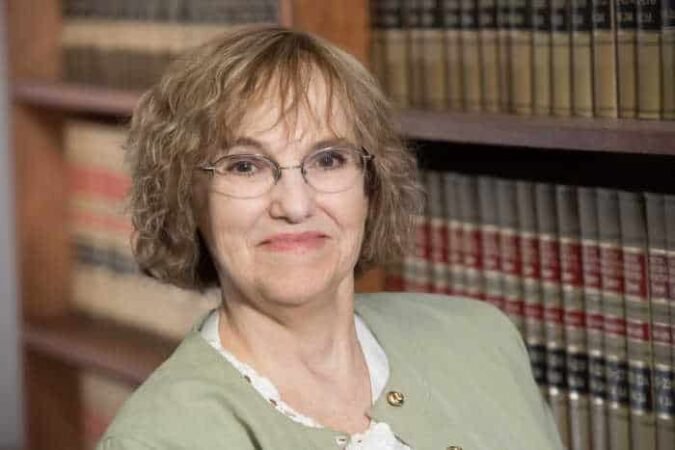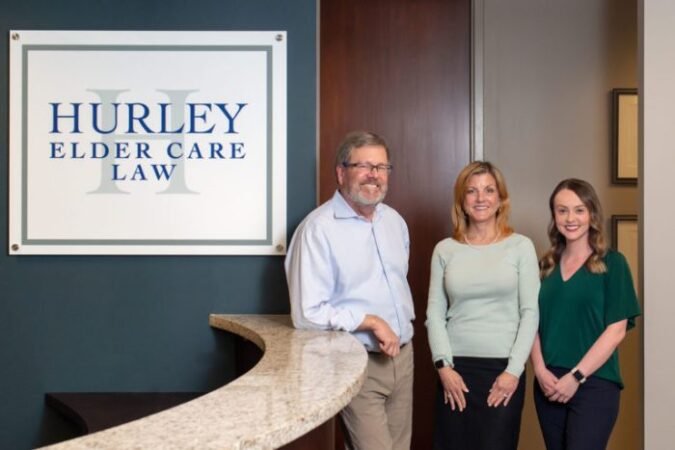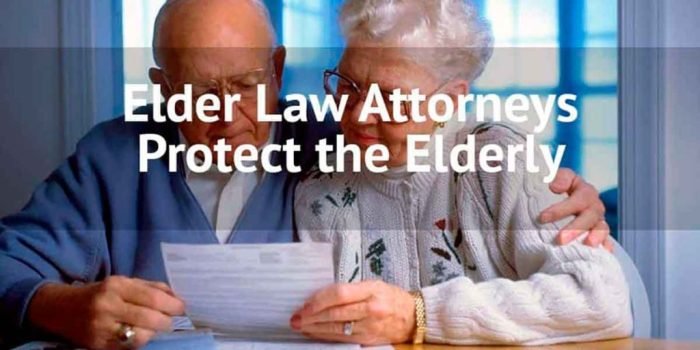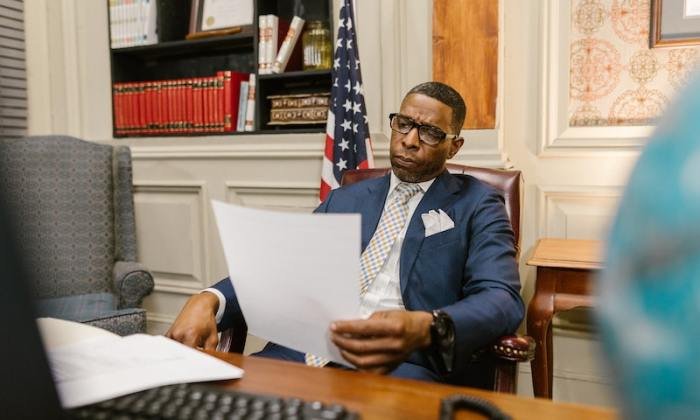
- Brownsburg Elder Law Attorney Services Offered
- Client Testimonials and Case Studies (Illustrative)
- Understanding the Legal Landscape for Seniors in Brownsburg
- Finding and Choosing a Brownsburg Elder Law Attorney
- Resources and Support for Seniors in Brownsburg
- Common Elder Law Myths and Misconceptions
- Last Point
- Helpful Answers
Navigating the complexities of elder law can be daunting, especially when facing the unique challenges presented by aging. This guide focuses on Brownsburg, Indiana, providing essential information for seniors and their families. We’ll explore the various legal services offered by Brownsburg elder law attorneys, delve into common legal issues affecting seniors in the area, and offer practical advice on finding the right legal representation. Understanding your options and planning proactively are crucial steps in ensuring a secure and comfortable future.
From estate planning and probate to guardianship and long-term care, Brownsburg elder law attorneys provide expert guidance through often difficult life transitions. This resource aims to demystify the legal process, empowering you to make informed decisions about your care and legacy.
Brownsburg Elder Law Attorney Services Offered

Navigating the complexities of aging and elder care often requires expert legal guidance. Brownsburg elder law attorneys provide a wide range of services designed to protect the rights and well-being of seniors and their families. These services encompass various legal areas, ensuring comprehensive support during challenging life transitions.
Our Brownsburg elder law attorneys possess extensive knowledge and experience in handling the unique legal issues faced by older adults and their families. We understand the emotional and financial pressures involved and strive to provide compassionate and effective legal representation.
Services Offered by Brownsburg Elder Law Attorneys
The following table Artikels the comprehensive services offered by our Brownsburg elder law attorneys. These services are tailored to meet the diverse needs of our clients, providing support and guidance through every stage of the aging process.
| Estate Planning | Probate & Estate Administration | Guardianship & Conservatorship | Medicaid & Long-Term Care Planning |
|---|---|---|---|
| Wills & Trusts | Will Contests | Guardianship Petitions | Medicaid Application Assistance |
| Power of Attorney | Estate Tax Planning | Conservatorship Petitions | Nursing Home Asset Protection |
| Healthcare Directives (Advance Directives) | Trust Administration | Representation in Guardianship Proceedings | Veteran’s Benefits Planning |
| Special Needs Trusts | Heir Tracing | Capacity Evaluations | Long-Term Care Contract Review |
Areas of Expertise Within Elder Law
Our Brownsburg elder law attorneys possess specialized expertise in several key areas within elder law, allowing us to provide targeted and effective legal solutions to our clients’ unique circumstances. This expertise ensures comprehensive legal support for seniors and their families facing the challenges of aging.
- Estate Planning: This involves creating legal documents such as wills, trusts, powers of attorney, and healthcare directives to ensure the smooth transfer of assets and the fulfillment of a client’s wishes regarding their healthcare and end-of-life care. Proper estate planning can minimize estate taxes and family disputes.
- Probate and Estate Administration: This encompasses the legal process of managing and distributing a deceased person’s assets according to their will or the laws of intestacy (dying without a will). Our attorneys handle all aspects of probate, from filing necessary paperwork to resolving disputes among heirs.
- Guardianship and Conservatorship: When an individual loses the capacity to manage their own affairs, a guardian or conservator may be appointed by the court to make decisions on their behalf. Our attorneys assist in the petitioning process and represent clients in guardianship and conservatorship proceedings.
- Medicaid and Long-Term Care Planning: Securing long-term care can be financially challenging. Our attorneys help clients navigate the complexities of Medicaid eligibility requirements and develop strategies to protect assets while qualifying for necessary care.
Distinction Between Estate Planning, Probate, and Guardianship Services
While related, estate planning, probate, and guardianship are distinct legal processes serving different purposes. Understanding these differences is crucial for effective legal planning and action.
Estate Planning is a proactive process of preparing for the future by creating legal documents to manage assets and healthcare decisions. It is designed to avoid future legal complications and ensure that your wishes are followed. An example would be creating a will to distribute assets to your children after your passing.
Probate is a reactive process that occurs after someone dies. It involves the legal process of validating a will, paying debts, and distributing assets to heirs. For instance, if someone dies with a will, probate court oversees the distribution of their estate according to the will’s instructions.
Guardianship is a court-ordered process that addresses the incapacity of an individual to manage their affairs. A guardian is appointed by the court to make decisions on behalf of the incapacitated person, protecting their well-being and financial interests. For example, if someone suffers from dementia and can no longer manage their finances, a guardian may be appointed to oversee their financial affairs.
Client Testimonials and Case Studies (Illustrative)
Our Brownsburg elder law firm is dedicated to providing compassionate and effective legal representation to seniors and their families. The following testimonials and case studies illustrate our commitment to achieving successful outcomes and providing exceptional client service. We believe these examples showcase the breadth and depth of our expertise in navigating the complexities of elder law.
Successful Resolution of a Complex Elder Law Case
Mrs. Eleanor Vance, a resident of Brownsburg, faced a challenging situation involving the distribution of her late husband’s estate. Multiple heirs, conflicting wills, and complex financial holdings threatened to delay the probate process significantly and potentially lead to significant legal costs. Our firm, through meticulous investigation and strategic negotiation, successfully navigated these complexities. We worked tirelessly to gather all necessary documentation, present a clear and compelling case to the court, and ultimately secured a fair and equitable distribution of assets for all parties involved, minimizing stress and financial burden for Mrs. Vance. The case was resolved efficiently and amicably, exceeding Mrs. Vance’s expectations. She expressed her gratitude for our firm’s diligence, responsiveness, and genuine care throughout the process.
Protecting a Senior Client’s Assets Through Strategic Legal Planning
Mr. Arthur Miller, a Brownsburg resident, approached our firm seeking assistance in protecting his substantial assets as he aged. He was concerned about potential future healthcare costs and the possibility of needing long-term care. Our attorneys developed a comprehensive estate plan tailored to his specific needs, including the establishment of a trust to safeguard his assets and minimize potential estate taxes. We also guided him through the process of applying for Medicaid benefits, ensuring he would qualify for necessary long-term care assistance without depleting his life savings. This proactive approach preserved Mr. Miller’s financial security and provided peace of mind for him and his family. The plan we implemented effectively protected his assets while ensuring he had access to the care he needed.
Positive Client Experience: Communication and Support
Ms. Patricia Davies of Brownsburg shared a positive experience regarding the communication and support she received from our firm during her Power of Attorney establishment process. She emphasized the clear and patient explanations provided by her attorney, who took the time to answer all her questions thoroughly and in a language she easily understood. Ms. Davies particularly appreciated the proactive communication updates throughout the process, ensuring she was always informed of the progress and next steps. The attorney’s consistent responsiveness and empathetic approach significantly reduced her stress and anxiety during a potentially difficult time. She felt supported and valued throughout the entire experience.
Understanding the Legal Landscape for Seniors in Brownsburg
Navigating the legal complexities of aging can be challenging, particularly in Brownsburg, Indiana. Elderly residents often face unique legal hurdles related to healthcare, finances, and estate planning, necessitating proactive legal counsel to protect their rights and well-being. This section Artikels some of the key legal challenges faced by seniors in Brownsburg and the importance of proactive planning.
Elderly residents in Brownsburg, like those across Indiana, face a variety of legal challenges. These include issues related to healthcare decisions, managing finances, planning for long-term care, and estate administration. The aging process often brings about diminished capacity, increasing the vulnerability of seniors to financial exploitation and undue influence. Furthermore, understanding and navigating the complexities of Medicare, Medicaid, and other government assistance programs can be overwhelming without professional guidance. The lack of proper planning can lead to significant financial burdens on families and increased stress during already difficult times.
Advanced Directives and End-of-Life Care Decisions
Advanced directives, such as living wills and durable powers of attorney for healthcare, play a crucial role in ensuring that seniors’ wishes regarding end-of-life care are respected. In Brownsburg, as in the rest of Indiana, these documents allow individuals to designate a healthcare surrogate to make medical decisions on their behalf if they become incapacitated. A living will Artikels an individual’s preferences for medical treatment, including life-sustaining measures, while a durable power of attorney for healthcare grants authority to a chosen person to make those decisions. Having these documents in place prevents family conflicts and ensures that medical care aligns with the individual’s wishes, offering peace of mind to both the senior and their loved ones. Without these directives, difficult and potentially contentious decisions may fall to family members who may not fully understand the senior’s wishes.
Long-Term Care Planning and Financing
Planning for long-term care is a significant legal and financial concern for seniors in Brownsburg. The cost of nursing homes and assisted living facilities can be substantial, quickly depleting personal savings. Understanding the eligibility requirements for Medicaid and other government assistance programs is crucial in mitigating these costs. Legal counsel can help seniors navigate the complexities of Medicaid applications, ensuring they receive the benefits they are entitled to. Furthermore, attorneys can assist with creating strategies for asset protection to preserve assets for the benefit of the senior and their family while still qualifying for necessary government assistance. Failure to plan adequately can leave families facing significant financial strain and potential impoverishment.
Finding and Choosing a Brownsburg Elder Law Attorney

Selecting the right elder law attorney is crucial for navigating the complex legal issues facing seniors and their families. A well-informed choice ensures your needs are met effectively and efficiently, minimizing stress during a potentially challenging time. This guide provides a structured approach to finding the best legal representation for your situation in Brownsburg.
Steps to Selecting a Qualified Brownsburg Elder Law Attorney
The process of finding a suitable attorney involves several key steps. First, begin by compiling a list of potential candidates through online searches, referrals from trusted sources (such as financial advisors or medical professionals), and inquiries with local bar associations. Next, review each attorney’s website and online profiles, paying attention to their experience, areas of specialization within elder law, and client testimonials. Then, narrow down your list to three to five attorneys whose profiles align with your specific needs. Schedule consultations with your top choices to discuss your case in detail and assess their suitability. Finally, after evaluating your consultations, select the attorney who you feel most comfortable with and who demonstrates the necessary expertise and empathy.
Attorney Fee Structures and Payment Options
Elder law attorneys typically employ various fee structures. Hourly rates are common, with fees varying based on the attorney’s experience and the complexity of the case. Flat fees might be offered for specific services, such as drafting a will or power of attorney. Contingency fees, where the attorney’s fee is a percentage of the recovered funds, are less common in elder law but may be an option in certain situations, such as Medicaid appeals. Payment plans are often available to accommodate client financial situations, and it’s advisable to discuss payment options upfront with the attorney. For example, an attorney might offer a payment plan structured around monthly installments, adjusted to align with the client’s income and budget. This transparency ensures financial clarity throughout the legal process.
Questions to Ask Brownsburg Elder Law Attorneys
Before committing to an attorney, it’s essential to gather comprehensive information. Asking pertinent questions ensures you’re making an informed decision.
- What is your experience specifically handling cases similar to mine?
- What is your fee structure, and are payment plans available?
- What is your approach to communication and client updates?
- Can you provide references from previous clients?
- What is your strategy for achieving the best possible outcome for my case?
- What are the potential risks and challenges involved in my case?
- What is your experience with [specific area of elder law relevant to your case, e.g., Medicaid planning, estate planning, guardianship]?
- How long have you been practicing elder law in Brownsburg?
- What is your process for handling emergencies or urgent matters?
- Are you a member of any relevant professional organizations, such as the National Academy of Elder Law Attorneys (NAELA)?
Resources and Support for Seniors in Brownsburg
Navigating the challenges of aging can be easier with access to the right resources. Brownsburg offers a variety of services and support systems designed to help seniors maintain their independence, health, and well-being. Understanding these resources is crucial for both seniors and their families.
Local Resources for Seniors in Brownsburg
Finding the appropriate assistance can significantly improve the quality of life for seniors. The following table lists some key organizations and government agencies that provide support to Brownsburg’s elderly population. It’s important to note that services and eligibility criteria may change, so contacting the organizations directly for the most up-to-date information is recommended.
| Organization | Services Offered |
|---|---|
| Brownsburg Town Hall (Contact for local senior programs) | Information on local senior centers, transportation assistance, and other community programs. |
| Indiana Department of Aging and Community Development (DADC) | Information on state-funded programs such as Medicaid, Medicare, and other senior assistance initiatives. |
| Area Agency on Aging (AAA) – Contact your local AAA for specific services | Provides a wide range of services including home-delivered meals, transportation, caregiver support, and assistance with accessing benefits. |
| Local Senior Centers (Check for Brownsburg specific centers) | Offer social activities, meals, health screenings, and educational programs tailored to the needs of seniors. |
| Volunteer organizations (e.g., Meals on Wheels, local churches) | Provide assistance with errands, companionship, and other support services. |
Financial Assistance and Benefits for Brownsburg Seniors
Several financial assistance programs are available to help Brownsburg seniors meet their needs. These programs can significantly alleviate financial burdens associated with healthcare, housing, and daily living expenses. Eligibility criteria vary depending on income and assets.
Medicare and Medicaid are two major federal programs that provide healthcare coverage. Medicare is primarily for individuals 65 and older, while Medicaid assists low-income individuals of all ages, including many seniors. Supplemental Security Income (SSI) provides monthly payments to seniors and disabled individuals with limited income and resources. The Indiana Housing and Community Development Authority (IHCDA) offers various housing assistance programs for low-income seniors. It is essential to thoroughly research these programs and their respective eligibility requirements.
The Role of Family Members in Supporting Elderly Parents
Family members play a vital role in assisting elderly parents navigating legal and financial matters. This support can range from helping with paperwork and attending appointments to providing emotional and practical assistance. Open communication and collaboration between family members and the senior are crucial for ensuring the best possible outcomes. Families may need to assist with managing finances, healthcare decisions, and long-term care planning. Understanding the legal documents, such as powers of attorney and advance directives, is essential for effective support. In situations where family members cannot provide adequate support, professional help from elder law attorneys and care managers becomes invaluable.
Common Elder Law Myths and Misconceptions
Many misconceptions surround elder law, leading to inadequate planning and potential hardship for seniors and their families. Understanding the realities of estate planning, healthcare directives, and long-term care is crucial for making informed decisions and ensuring a secure future. Addressing these common myths can empower individuals to take proactive steps towards protecting their well-being and legacy.
Myth 1: Estate Planning is Only for the Wealthy
This is a significant misconception. Estate planning is not solely about managing vast fortunes; it’s about protecting your assets and ensuring your wishes are followed, regardless of your net worth. A well-structured plan safeguards your assets from potential creditors, facilitates the smooth transfer of property to loved ones, and minimizes estate taxes – benefits applicable to individuals of all financial backgrounds. Even modest estates benefit from clear instructions regarding healthcare decisions and the distribution of possessions. Failing to plan can lead to unnecessary legal battles and financial burdens on surviving family members. For example, a simple will ensures your assets are distributed according to your wishes, preventing potential conflicts among heirs. Similarly, a durable power of attorney designates someone to manage your finances if you become incapacitated, preventing mismanagement or delays in critical financial matters.
Myth 2: Medicaid Will Pay for Everything
While Medicaid provides essential financial assistance for long-term care, it’s not a comprehensive solution for all expenses. Medicaid has strict eligibility requirements, including asset limits. Individuals exceeding these limits may be ineligible for coverage, leaving them responsible for substantial healthcare costs. Furthermore, Medicaid doesn’t cover all services, and waiting lists for certain types of care can be extensive. Proactive planning, such as utilizing strategies like asset protection trusts, can help individuals qualify for Medicaid while preserving assets for their families. For instance, a properly structured trust can shield assets from Medicaid scrutiny while still allowing for access to funds for essential needs.
Myth 3: I’m Too Young to Worry About Elder Law
Beginning the estate planning process early is crucial. Unexpected events can occur at any age, and having a plan in place safeguards your interests and those of your loved ones. Delaying planning increases the risk of facing critical decisions without proper legal guidance, potentially resulting in unintended consequences. Proactive planning allows for adjustments as circumstances change, providing flexibility and peace of mind. For example, a young individual facing a serious illness can use advance directives to ensure their healthcare wishes are followed. Similarly, a young parent can establish guardianship arrangements for their children in the event of their incapacitation.
The Importance of Proactive Planning for Aging Parents
Proactive planning is essential to protect aging parents from financial exploitation, ensure their healthcare wishes are honored, and facilitate a smooth transition as their needs evolve. Open communication and early involvement in the planning process are crucial. This allows for a collaborative approach, ensuring the plan reflects the parents’ desires and preferences while addressing potential challenges proactively. Failing to plan can lead to significant stress for both parents and their children, and could result in legal disputes and unnecessary financial strain.
Implications of Failing to Plan for Incapacity and End-of-Life Decisions
Failing to plan for incapacity and end-of-life decisions can lead to a myriad of legal and financial complications. Without advance directives such as a living will or durable power of attorney, critical decisions regarding healthcare and finances may fall to family members who may not fully understand the parent’s wishes, leading to conflict and potentially suboptimal care. Furthermore, a lack of estate planning can result in protracted probate proceedings, delaying the distribution of assets and creating additional burdens for heirs. The absence of clear instructions can also expose the estate to potential challenges and litigation, further complicating matters.
Last Point

Planning for the future is a vital act of self-care and responsibility. By understanding the legal landscape and accessing the resources available in Brownsburg, Indiana, seniors and their families can approach aging with confidence. The assistance of a qualified elder law attorney can provide invaluable support and guidance, ensuring your wishes are respected and your well-being protected throughout life’s later stages. Remember, proactive planning is key to a smoother and more secure future.
Helpful Answers
What is the average cost of hiring a Brownsburg elder law attorney?
Attorney fees vary depending on the complexity of the case and the attorney’s experience. It’s best to schedule consultations to discuss fees upfront.
Do I need an elder law attorney if I have a simple will?
Even simple wills benefit from professional review. An attorney can ensure your will is legally sound and aligned with your wishes.
What if I don’t have family to help with my elder law matters?
Brownsburg offers various resources, including non-profit organizations and government agencies, to assist seniors without family support. An attorney can help you access these resources.
How can I find a Brownsburg elder law attorney who specializes in Medicaid planning?
Many attorneys specialize in Medicaid planning. Look for attorneys advertising this expertise or ask during your consultation.





